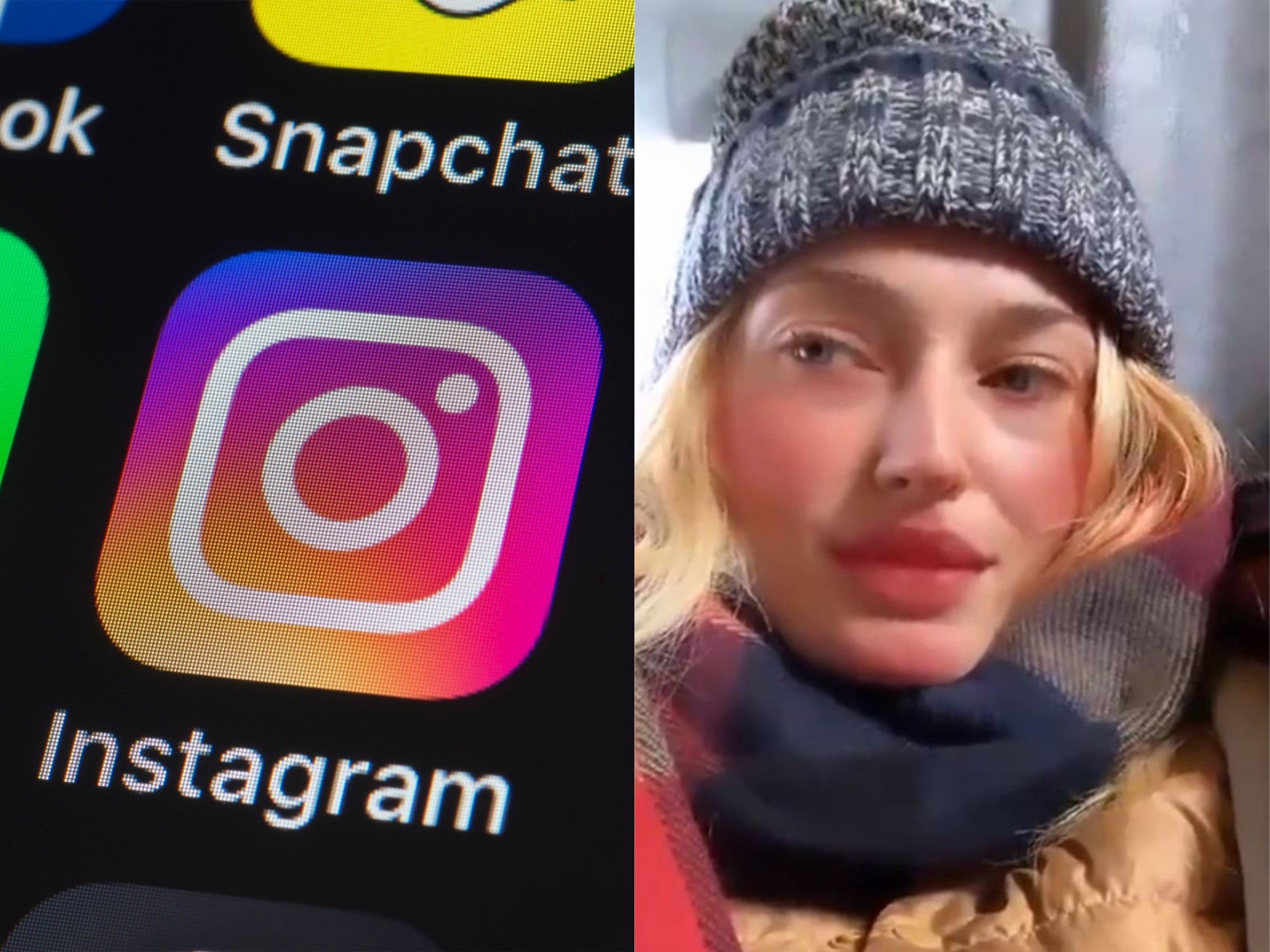Instagram bans filters with ‘plastic surgery’ effect
‘Instagram banning plastic surgery-like filters is the best news I’ve heard in a while’

Your support helps us to tell the story
From reproductive rights to climate change to Big Tech, The Independent is on the ground when the story is developing. Whether it's investigating the financials of Elon Musk's pro-Trump PAC or producing our latest documentary, 'The A Word', which shines a light on the American women fighting for reproductive rights, we know how important it is to parse out the facts from the messaging.
At such a critical moment in US history, we need reporters on the ground. Your donation allows us to keep sending journalists to speak to both sides of the story.
The Independent is trusted by Americans across the entire political spectrum. And unlike many other quality news outlets, we choose not to lock Americans out of our reporting and analysis with paywalls. We believe quality journalism should be available to everyone, paid for by those who can afford it.
Your support makes all the difference.Instagram face filters that allow users to make it look as though they have undergone plastic surgery are to be removed, it has been announced.
Spark AR, the augmented reality platform that creates the filters, released a statement announcing the update on Facebook.
The company said it is re-evaluating its “existing policies as they relate to well-being”, saying that they want those who use Spark AR effects to have a “positive experience”.
The firm stated it is “removing all effects associated with plastic surgery from the Instagram Effect Gallery”, in addition to “postponing approval of new effects associated with plastic surgery until further notice”.
“At this time, we’re not able to provide exact timing on the new policy rollout, but we’ll share updates as soon as we can,” the statement added.
Several Twitter users praised the decision for cosmetic surgery-themed face filters to be removed from Instagram.
“Instagram banning plastic surgery-like filters is the best news I’ve heard in a while,” one person wrote.
“Filters can be fun, but they can also adversely affect the way you see yourself when you look in the mirror without them,” another added.
According to Spark AR, more than one billion people have used its face-alteration filters across social media in the past year.
In August 2018, a study published in the journal JAMA Facial Plastic Surgery found that face filters on apps are leading to a phenomenon called “Snapchat dysmorphia”.
Dr Neelan Vashi, director of the Boston University Cosmetic and Laser Centre, explained that “patients are seeking out surgery to help them appear like the filtered versions of themselves”.
“Filtered selfies especially can have harmful effects on adolescents or those with BDD [body dysmorphic disorder] because these groups may more severely internalise this beauty,” the scientist added.
It was recently reported that advertisements for weight loss brands featured on the Instagram accounts of several reality television stars had been banned after being deemed irresponsible.
The Advertising Standards Authority found that posts shared by Katie Price, Lauren Goodger and Georgia Harrison that promoted weight loss products were in breach of rules around health claims.
Join our commenting forum
Join thought-provoking conversations, follow other Independent readers and see their replies
Comments